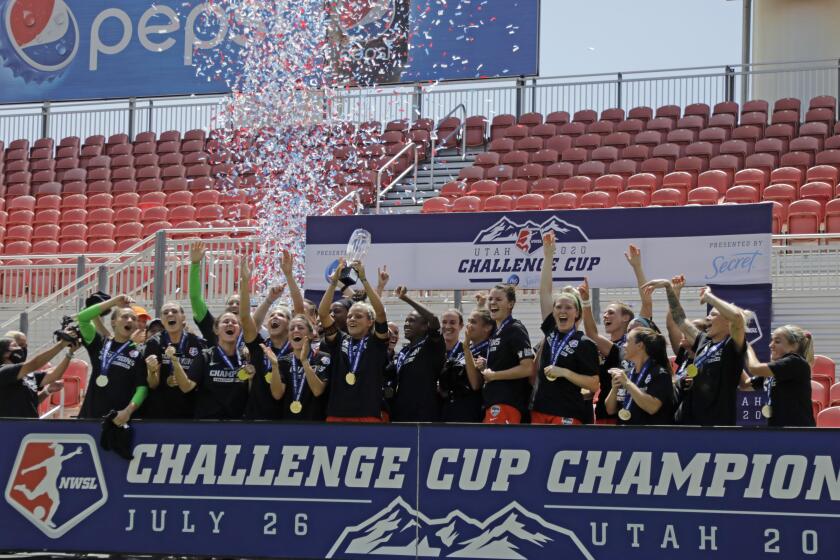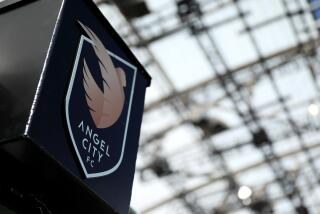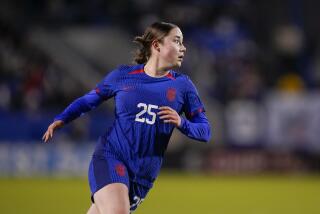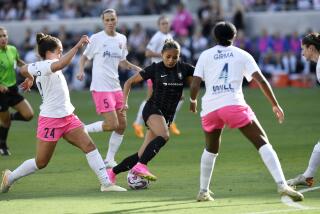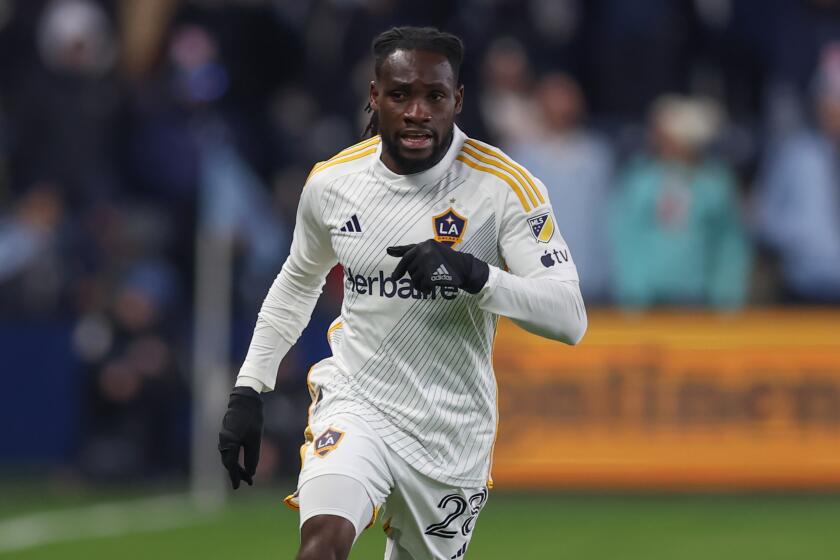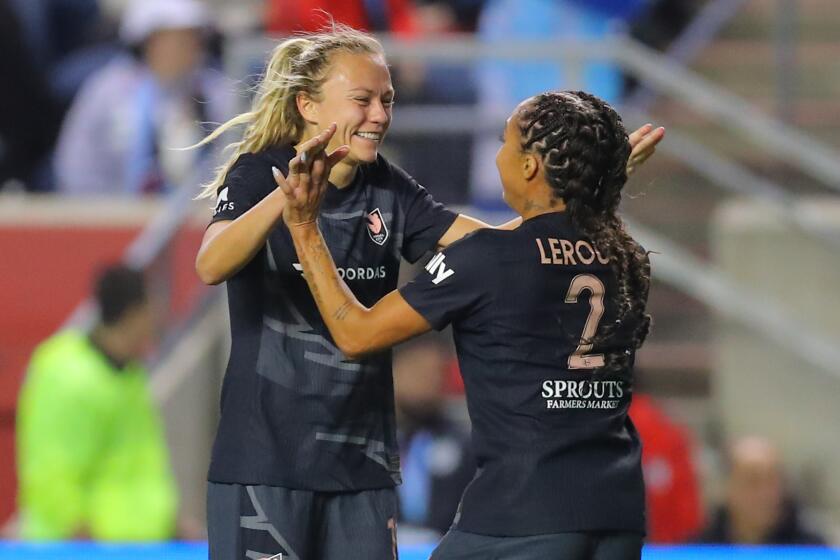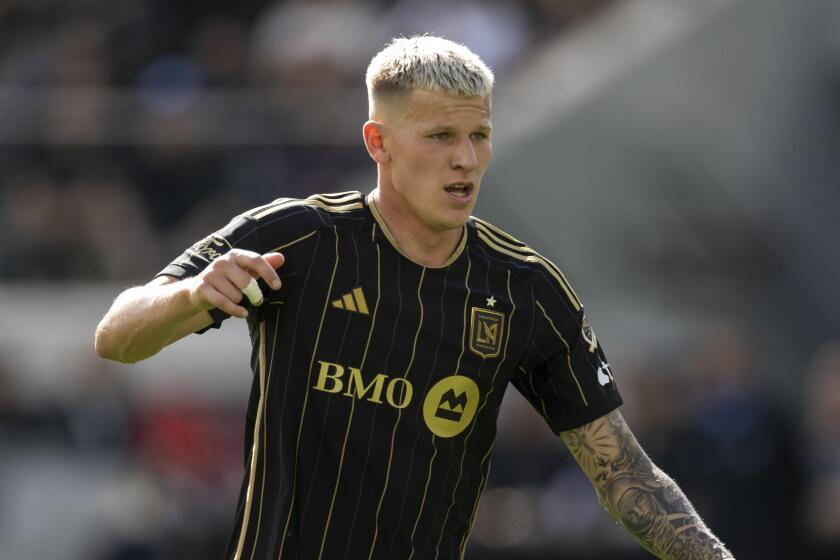Lisa Baird faces challenges head-on as NWSL commissioner
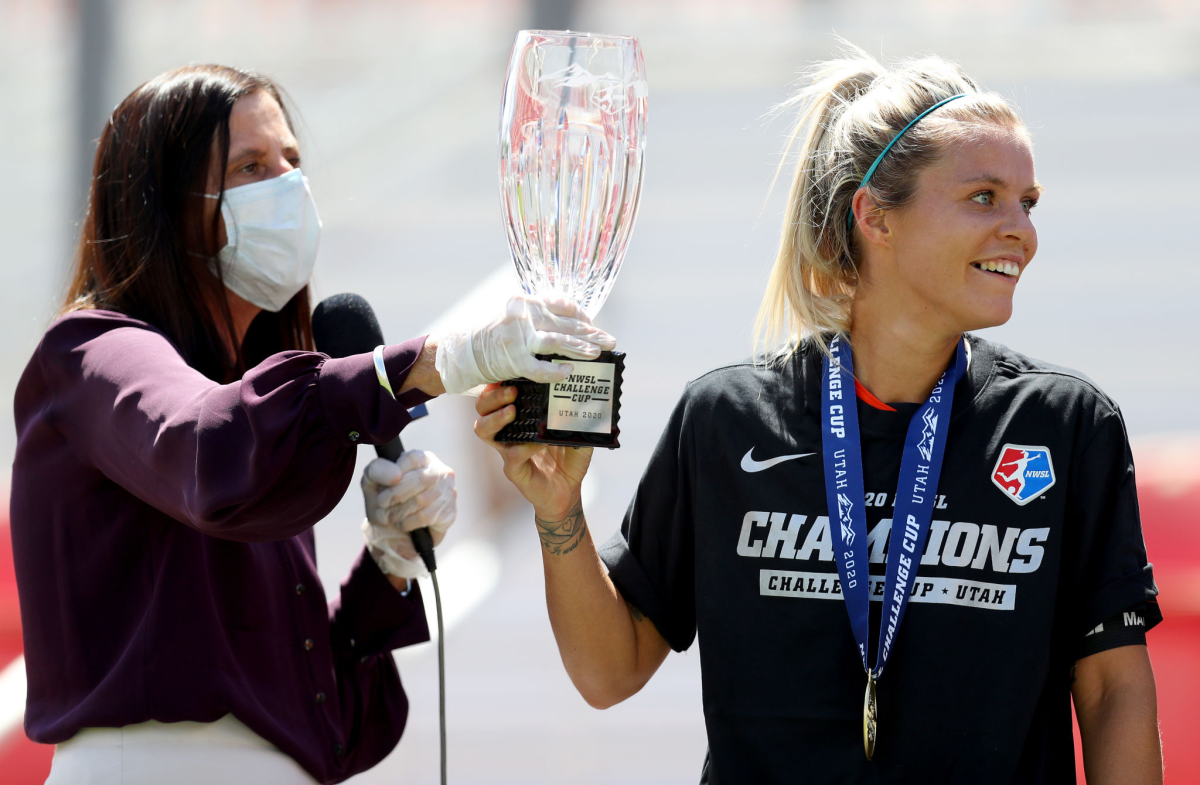
Lisa Baird’s first day as commissioner of the National Women’s Soccer League was March 10.
Two days later, sports leagues around the world shut down because of COVID-19.
“That’s about as tough and rude of an awakening taking a new gig as I’ve ever heard of,” said Jake Silverstein who, as part owner of the NWSL’s Houston Dash, is one of the people who gave Baird the job.
However, taken another way, the timing couldn’t have been better: Baird addressed the challenge head on, and under her leadership the NWSL not only became the first professional sports league in the U.S. to return to play during the pandemic, but it staged two separate — and successful — tournaments.
It also saw its TV ratings jump 493%, drawing an average of nearly 463,000 viewers for six broadcasts on CBS and adding corporate sponsors in Google, P&G and Verizon. Additionally, Baird hammered out a deal with the players’ association that would pay everyone a full salary whether they played through the pandemic or not and moved forward with plans to add teams in Louisville, Sacramento and Los Angeles.
Angel City Football Club will be the name of L.A.’s NWSL team. Its group of owner-investors now includes tennis legend Billie Jean King and her partner Ilana Kloss.
“Our agenda expanded more than it changed because there was an existential moment,” Silverstein said. “Rather than demurring away, Lisa correctly recognized sometimes the best defense is a good offense. She recognized that the right thing to do here was to try to make the NWSL more robust, more visible, more relevant.”
So while Major League Baseball and MLS limped through COVID-interrupted seasons with postponed and canceled games and TV ratings dipped everywhere except for the PGA and the WNBA Finals, the NWSL grew stronger.
“We couldn’t have reverse-engineered a better commissioner to put at the helm during this crisis,” Silverstein said. “During these challenges I think she’s succeeded.”
Baird, 59, whose resume includes stints in marketing for IBM, the NFL, the U.S. Olympic Committee and New York Public Radio before becoming the NWSL’s third commissioner in seven years, deflected praise during a brief phone call last week.
“The people that deserve credit are my owners — for really getting behind me even when I was asking them to take a leap of faith — and most importantly, the players. The reason sponsors got behind us, the reason we had great ratings, is because we have the most popular athletes in the sport that’s the most popular in the world.”
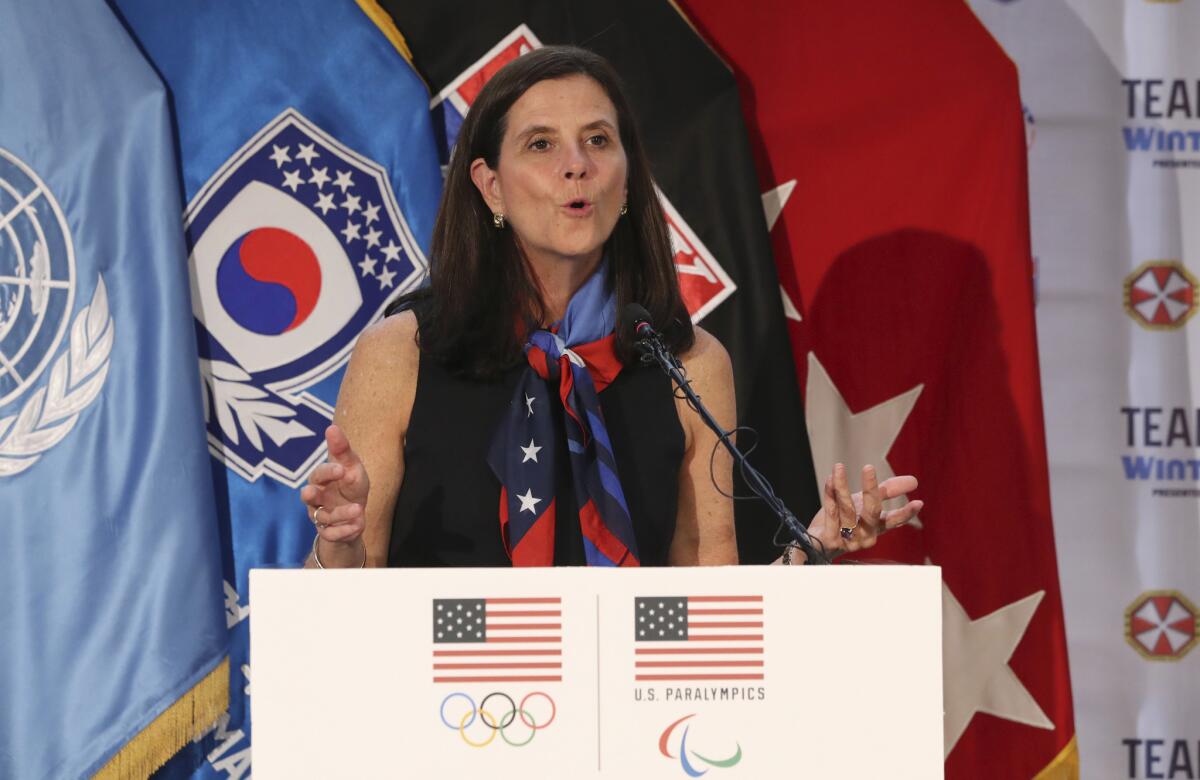
With four World Cup titles and a roster of players ranging from Mia Hamm and Abby Wambach to Carli Lloyd, Megan Rapinoe and Alex Morgan, no country has ever matched the U.S. in women’s soccer. But at the club level it took Baird — with some unwelcome help from the COVID-19 shutdown — to make people notice.
The commissioner laid a foundation by listening to players and allaying their concerns about COVID-19 protocols, pay and other benefits. Contrast that with the approach of MLS Commissioner Don Garber, who threatened to lock his players out if they didn’t accept his demands.
“It’s just about the building of trust between us and the league. And realizing that we have the same goals,” said Emily Menges of the Portland Thorns, a member of the union’s executive board. “This year has been a massive, massive step toward that.”
That trust paved the way for the Challenge Cup tournament, which kicked off to a sports-starved country in late June. The opener, the first competitive game in any sport in the U.S. in more than 3 ½ months, was watched by 572,000 viewers, the most ever for a women’s club game on U.S. television.
The final, a month later, did even better when 653,000 tuned in — far outdistancing the largest audience for an MLS game during the pandemic according to figures provided by Soccer America. And not one player or staff member in the NWSL quarantine bubble tested positive for COVID-19 during the 29-day event.
Baird doubled down on that success with a 36-game Fall Series, in which each team played twice at home and twice on the road. With much of the college football season delayed by the coronavirus, CBS gave its open Saturday afternoon airtime to the NWSL and the league rewarded the network by averaging 388,000 viewers per game, five times what it drew last year on cable.
Only one woman tested positive during the Fall Series and she was an injured player who was isolated.
But it hasn’t all been rainbows and butterflies for a league whose balance sheets are still deep red. The Orlando Pride nearly derailed the Challenge Cup when 10 members of its traveling delegation tested positive for COVID-19, forcing the team to pull out of the tournament before leaving Florida. Two months later, Utah Royals owner Dell Loy Hansen, who hosted the tournament at his stadium and housed players and staff at the academy of his MLS team outside Salt Lake City, took a leave of absence and announced he would sell his teams after his history of racist comments and a misogynistic company culture were made public in articles by the Athletic and other media outlets.
At about the same time, five of the brightest stars on the world champion national team left the NWSL for the Women’s Pro League in England.
“We’re still a relatively new league and we are still growing. We’re not sitting here saying we’re done,” Baird said. “We have to work twice as hard as everybody else, continuing to make inroads in terms of the exposure and the player recognition, long-term building blocks that will make us a sustainable league.”
The league, which contracted from 10 to nine teams in 2018, will go back to 10 next season with the addition of Racing Louisville. Los Angeles’ Angel City FC, whose majority female ownership group includes more than two dozen A-list Hollywood celebrities and athletes, will join in 2022. The team will also add a franchise in Sacramento sometime in the next two seasons.
“We had some successes this year and they all bode well for the future,” Baird said. “But we still have challenges ahead of us. We need to make sure that we’re competitive in terms of players salaries because the demand and the desire for the top women players in our league is growing.
“So no way I’m sleeping yet. I have a lot of work to do.”

